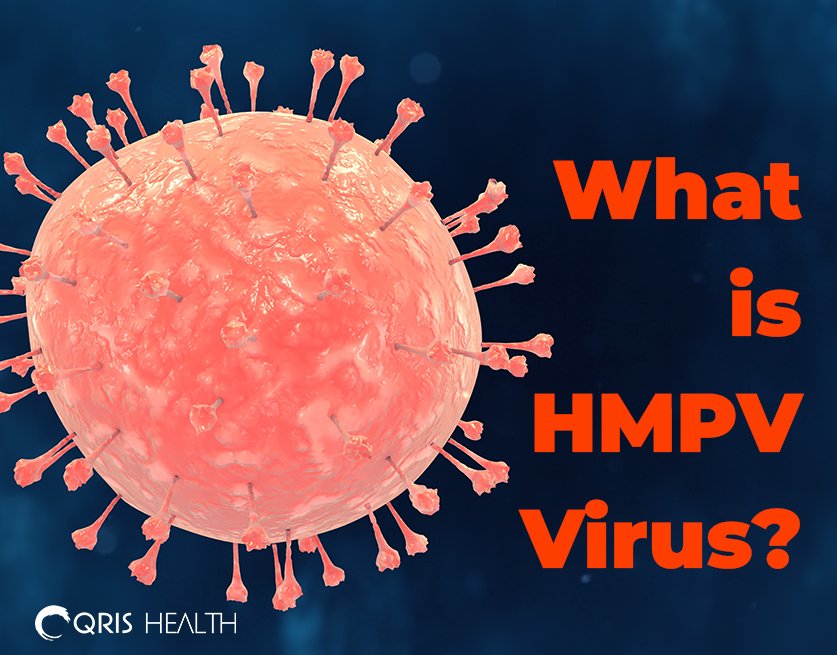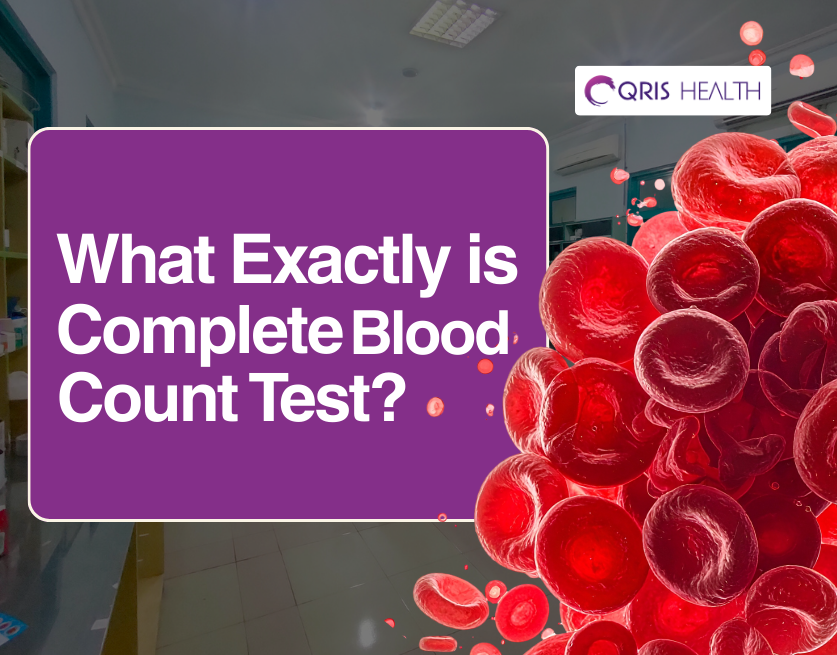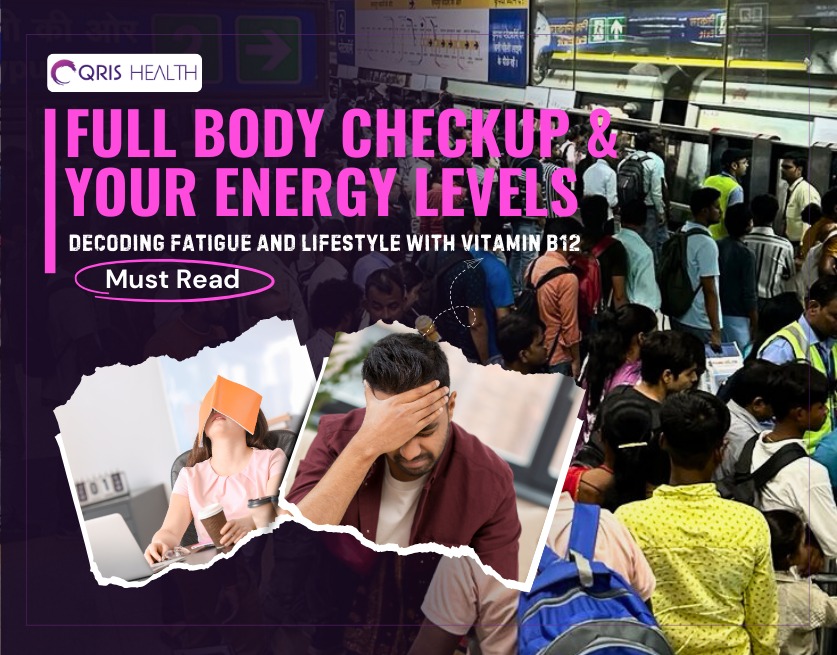Human Metapneumovirus or HMPV has recently become a hot topic because of the recent identified cases in India. Although the virus primarily causes mild to moderate flu-like illnesses, it can be exceptionally dangerous in some at-risk populations including young children, elderly, and immunosuppressed people. All of this makes it important to learn everything that is concerning this virus, from symptoms through mode of spreading and preventive measures or steps. These are vital for protecting self and entire communities.
HMPV - An Overview
HMPV ought to be considered a Pneumoviridae family and a worldwide respiratory virus responsible for disease processes ranging from mild colds to serious infections such as pneumonia and bronchiolitis. It was likely already in circulation since the 1970s, but it became officially known to scientists in 2001. Worldwide, HMPV constitutes approximately 4 to 16% of acute respiratory infection cases, with peak occurrences during winter and spring.
Recent HMPV Cases in India
India recently reported three cases of HMPV:
• A three-month-old girl in Bengaluru was diagnosed with the virus after a history of bronchopneumonia.
• An eight-month-old boy, also from Bengaluru, tested positive and is currently recovering.
• A single case was identified in Gujarat.
These cases highlight the virus's potential to affect young children severely, particularly those with underlying health conditions.
Symptoms of HMPV
HMPV symptoms are often similar to those of other respiratory infections, making diagnosis challenging without laboratory tests. Common symptoms include:
• Cough
• Fever
• Nasal congestion
• Wheezing
• Shortness of breath
In severe cases, HMPV can lead to bronchitis or pneumonia, especially in vulnerable groups like infants, the elderly, and immunocompromised individuals.
High-Risk Groups for HMPV
While HMPV can infect anyone, certain populations are at higher risk:
1. Young Children: Infants and toddlers, particularly those encountering the virus for the first time, may experience severe respiratory conditions like bronchiolitis or pneumonia.
2. Elderly Adults: Those aged 65 and above, especially with chronic conditions like asthma or COPD, face increased complications.
3. Pregnant Women: Infections during pregnancy can pose risks to both the mother and the baby.
4. Immunocompromised Individuals: People with weakened immune systems, due to medical conditions or treatments like chemotherapy, are more susceptible to severe symptoms.
How Does HMPV Spread?
HMPV is highly contagious and spreads through several means:
• Respiratory Droplets: When an infected person coughs, sneezes, or talks, respiratory droplets can transmit the virus.
• Direct Contact: Physical contact with an infected individual increases the risk of infection.
• Surface Contamination: Touching contaminated objects, such as doorknobs or mobile devices, can lead to transmission.
• Airborne Particles: In poorly ventilated or crowded spaces, the virus can remain suspended in the air for extended periods.
Complications Associated with HMPV
While most individuals recover within 7–10 days, severe complications can occur in vulnerable groups. These include:
• Pneumonia: Inflammation of the lungs may require hospitalization and intensive care.
• Bronchiolitis: Infants may experience inflamed and blocked airways, leading to breathing difficulties.
• Exacerbation of Chronic Conditions: Conditions like asthma or COPD can worsen due to HMPV.
• Secondary Infections: Bacterial infections, such as pneumonia, may develop due to a weakened immune system.
• Pregnancy Risks: HMPV can cause respiratory issues in pregnant women, potentially impacting maternal and fetal health.
Diagnosing HMPV
Given the overlap of HMPV symptoms with other respiratory infections, specific diagnostic tests are required:
1. PCR Test: This test detects the genetic material of the virus and is considered the gold standard for HMPV diagnosis.
2. Rapid Antigen Tests: These provide quicker results but are less sensitive than PCR tests.
3. Bronchoscopy: In some cases, doctors may use bronchoscopy to examine changes in the airways.
Treatment Options for HMPV
There is currently no antiviral medication or vaccine available for HMPV. Treatment focuses on managing symptoms and preventing complications.
• Rest and Hydration: Essential for recovery and maintaining overall health.
• Over-the-Counter Medications: Fever and body aches can be alleviated using medications like acetaminophen or ibuprofen.
• Oxygen Therapy: Severe cases may require supplemental oxygen or mechanical ventilation.
• Hospitalization: Patients with significant complications, such as pneumonia, may need close monitoring in a hospital setting.
Preventing HMPV
Preventive measures are vital in the absence of a vaccine. Some steps to reduce the risk include:
1. Practice Good Hygiene
- Wash hands frequently with soap and water for at least 20 seconds.
- Use alcohol-based hand sanitizers when soap is unavailable.
2. Avoid Close Contact
- Stay away from individuals displaying symptoms of respiratory illness.
- Limit exposure to crowded spaces during peak seasons.
3. Disinfect Surfaces
- Regularly clean high-touch surfaces like doorknobs, countertops, and mobile phones.
4. Wear Masks
- Masks can help reduce exposure to respiratory droplets during outbreaks or flu seasons.
5. Isolate When Sick
- If experiencing symptoms, stay at home to prevent spreading the virus to others.
Lessons from Recent Outbreaks
A recent outbreak in China underlined the potential severity of HMPV, particularly in children under 14. Many required hospitalizations due to severe symptoms like bronchiolitis and pneumonia. Health authorities emphasized the importance of preventive measures, including hand hygiene, mask-wearing, and early testing, to curb the spread.
Conclusion
Human Metapneumovirus (HMPV) may not yet have the widespread recognition of influenza or RSV, but it is a significant cause of respiratory illness worldwide. Awareness of its symptoms, understanding its risks, and adopting preventive practices are crucial in managing its impact.
While most cases resolve without complications, vulnerable groups should remain vigilant. By practicing good hygiene, avoiding unnecessary exposure, and seeking timely medical care, we can minimize the risks associated with HMPV and protect our loved ones.
FAQs
1. Is HMPV serious?
HMPV is usually mild and causes symptoms similar to the common cold. However, it can lead to serious complications like pneumonia in young children, the elderly, and those with weakened immune systems.
2. How do I get rid of HMPV?
There is no specific treatment for HMPV. Rest, hydration, and over-the-counter medications to alleviate symptoms are recommended. Severe cases may require medical intervention.
3. How long does HMPV last?
HMPV symptoms typically last 2–5 days and resolve on their own. Most individuals recover fully without complications.
4. Do you need antibiotics for HMPV?
No, antibiotics are ineffective against HMPV as it is a virus, not a bacterial infection. Supportive care is the best approach for recovery.
5. What is HMPV?
HMPV (Human Metapneumovirus) is a respiratory virus in the Pneumoviridae family, related to RSV. It was first discovered in 2001 and primarily causes cold-like symptoms.
Read More
Understanding the Human Metapneumovirus (HMPV) - Is It Dangerous?
How to Treat HMPV Virus Infections
How to Prevent HMPV Virus Transmission
How to Identify HMPV Virus Symptoms
Understanding the Human Metapneumovirus (HMPV) and Its Symptoms
Who Is Most at Risk for HMPV Virus?
What Treatments Are Available for HMPV Virus?


 Health Risks of Inactive Lifestyle.jpg)
 Health effects of smoking.jpg)


